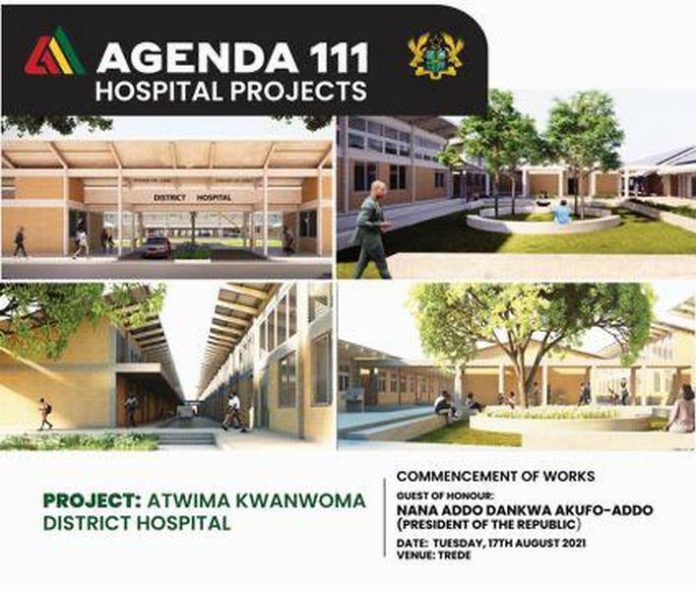Economist and Professor Lord Mensah has called on the government to make tough decisions and reevaluate some of its flagship programs in order to manage the economy effectively.
He expressed concerns that some policies would require significant investments in dollars, while others have not delivered tangible benefits to Ghanaians, making it unnecessary for the government to continue allocating funds to them.
Regarding specific projects, Professor Mensah highlighted Agenda 111 and Planting for Food and Jobs (PJF).
He criticized the cost of building each hospital under Agenda 111, which amounts to $16 million. With a total of 111 hospitals planned, the project’s overall cost is estimated to be at least $1.8 billion. He emphasized that given the current challenges in obtaining dollars, financing such projects through Treasury Bills would lead to perpetual borrowing.
“This is not the time to proceed with projects like Agenda 111, which will cost $16 million dollars per hospital. With such an enormous amount needed for infrastructure and equipment, the government would require $1.1 billion dollars to complete the 111 hospitals. However, with the difficulty in obtaining dollars at this time, this approach is unsustainable,” Professor Mensah warned in an interview on Adom’s Burning Issues.
Concerning the Planting for Food and Jobs initiative, the Associate Professor of Finance pointed out that it has not achieved its intended goals.
He reasoned that the country’s food inflation would not be a pressing issue if the project had been successful. Therefore, he urged the government to reconsider investing further in its second phase and instead redirect the funds to other areas with more tangible benefits.
“The Planting for Food and Jobs project has not yielded the desired results, evident from the current food inflation. It would be unwise for the government to continue pouring money into its second phase without reevaluating its effectiveness. Redirecting these funds to more beneficial areas would be a prudent move at this critical time,” Professor Mensah emphasised.
Burning Issues: Former NPP MP exposes Ghana’s troubling corruption crisis: It’s tough to speak out


